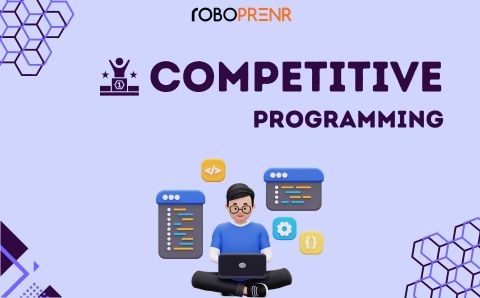1668A, 14th Main Rd, Sector 7, HSR Layout, Bengaluru, Karnataka 560102
+91 99459 30733 (9am - 6pm IST, Saturday - Sunday) (10am - 7pm IST, Tuesday - Friday)

This competitive programming curriculum covers a wide range of essential topics aimed at equipping learners with the skills needed to tackle complex problems efficiently. Starting with problem analysis and understanding time complexity, students delve into analyzing constraints, crucial for optimizing solutions.
Number theory concepts such as the Sieve of Eratosthenes, the Pigeonhole Principle, and Modular Arithmetic are explored, providing tools for handling integer-based problems effectively. Additionally, techniques like Binary Exponentiation and the Euclidean Theorem for GCD offer efficient solutions for mathematical challenges.
Arrays and Hashing, Sorting and Searching, and advanced algorithms like Two Pointers, Sliding Window, and Binary Search are covered to enhance problem-solving abilities. Recursion and Backtracking, pivotal for solving problems with recursive structures, are thoroughly studied.
Students then progress to understanding Trees and Graphs, both fundamental data structures for many algorithms. Advanced graph algorithms and dynamic programming techniques are introduced to tackle more intricate problems.
The curriculum also includes Range Queries, Interval Questions, and Miscellaneous topics like Policy-Based Data Structures (PBDS) and monotonic stacks, providing students with diverse tools to approach various problem types effectively. By mastering these concepts, students are well-prepared to excel in competitive programming competitions.